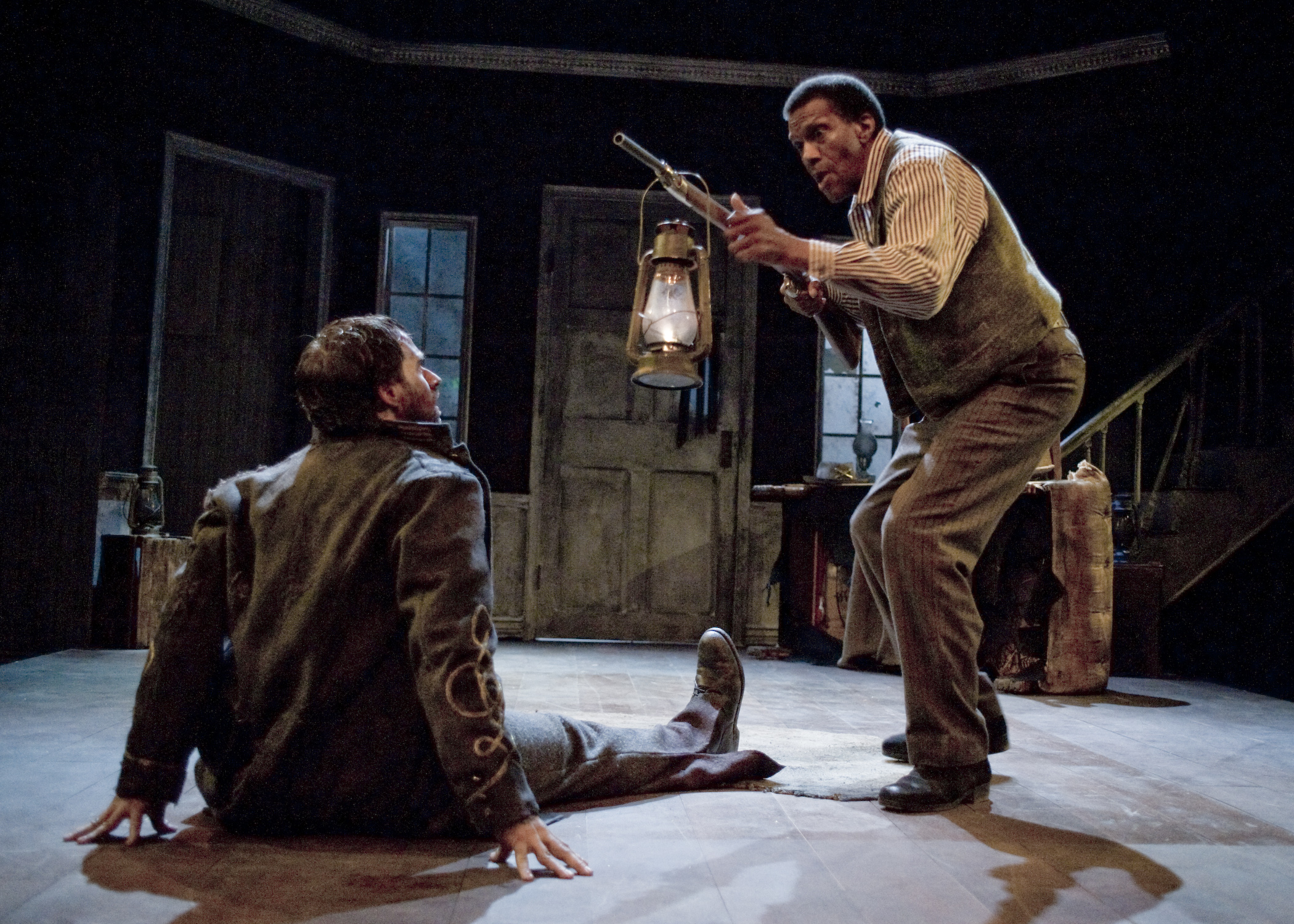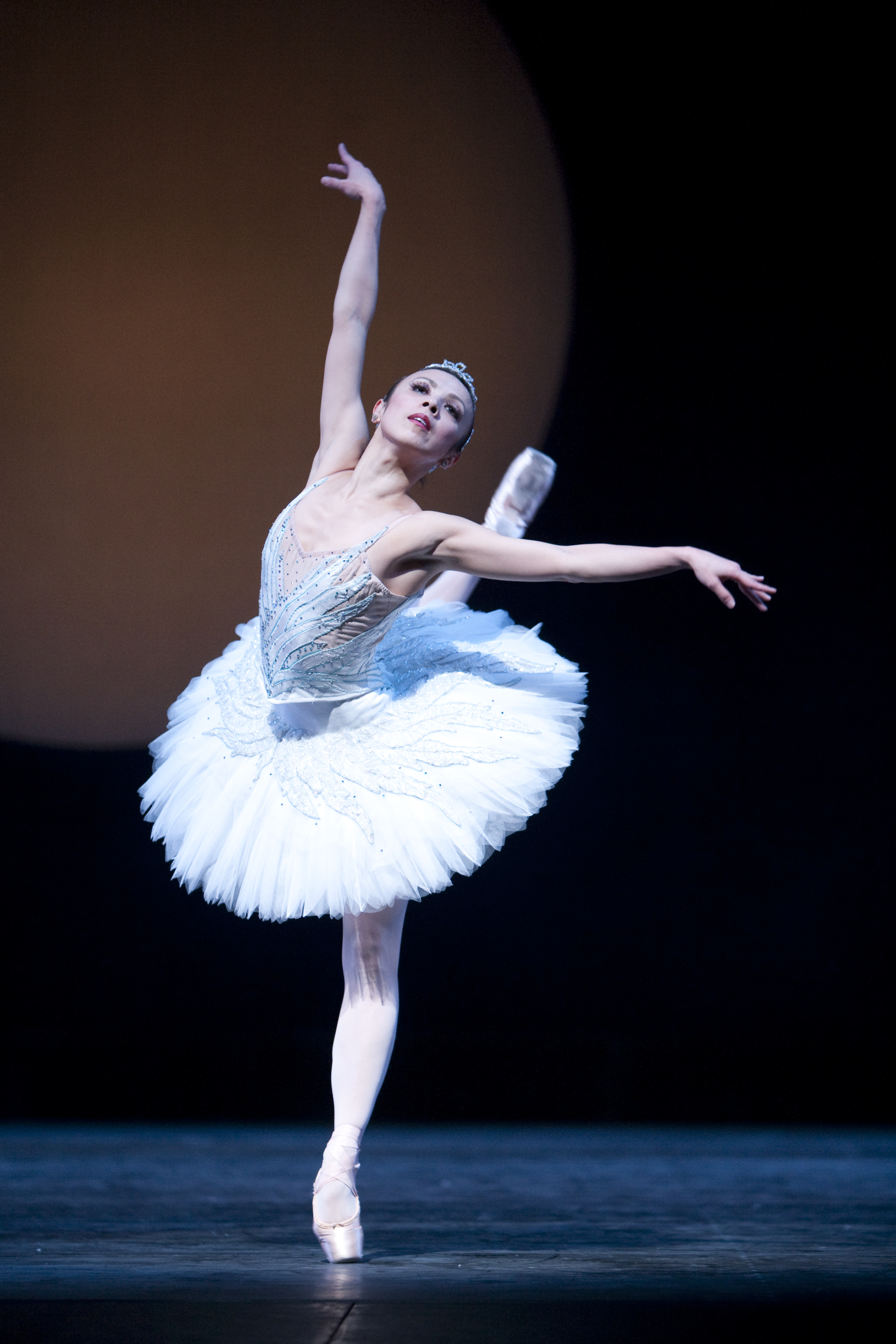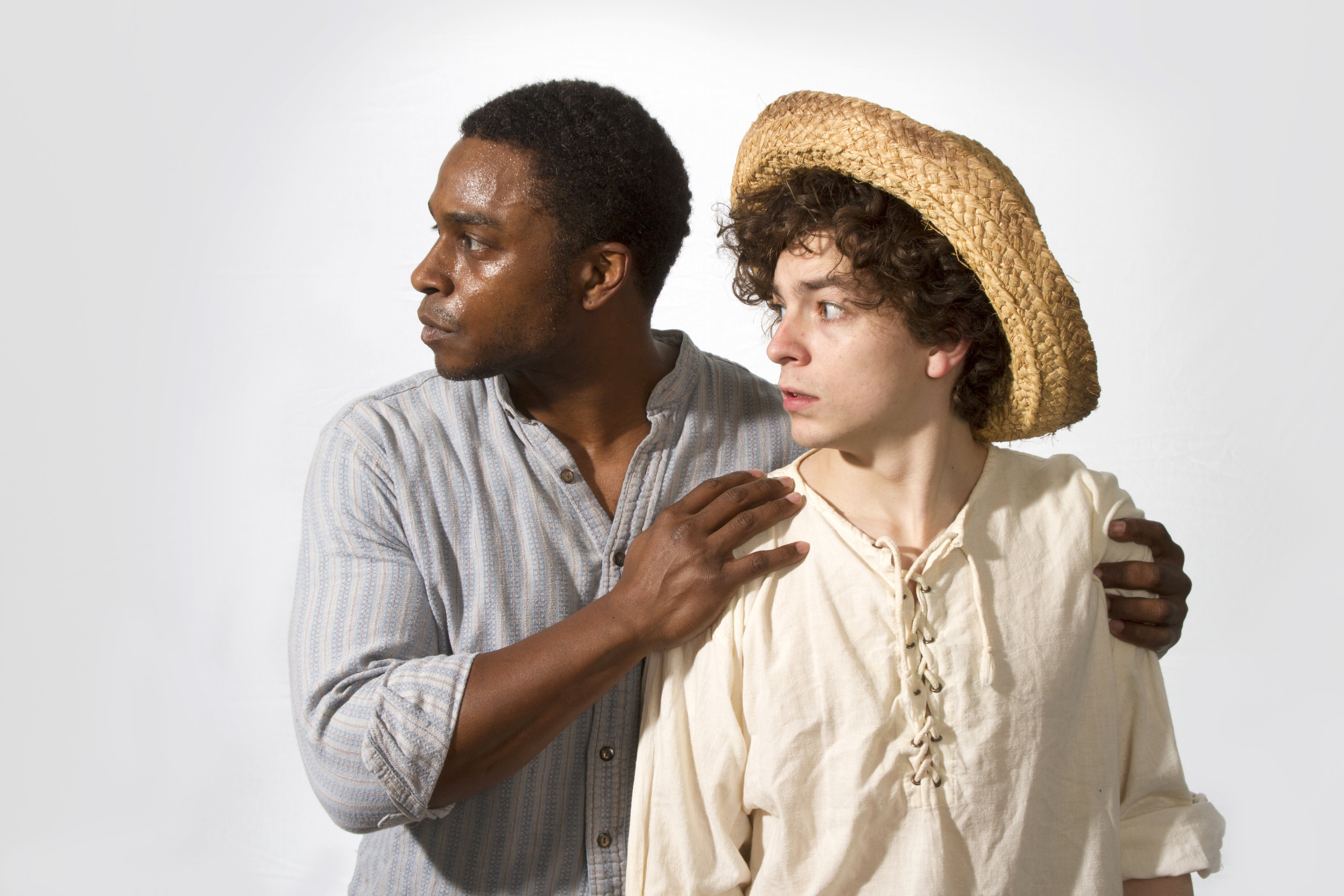THURSDAY 4/11
Dance: In With a Bang
Not many artworks combine Nancy Sinatra and Shakespeare, but Trey McIntyre mixes them in his Queen of the Goths, where “Bang, Bang (My Baby Shot Me Down)” is part of the soundtrack for the story of the vengeful Tamora, extracted from Titus Andronicus. McIntyre’s career as a freelance choreographer, moving adroitly among ballet, jazz, and contemporary-dance commissions, has coalesced into his own Boise, Idaho, company, and the repertory is equally nimble. This program shifts from high Gothic revenge to a contemplative exploration of death in Pass, Away, where Jessye Norman and Richard Strauss substitute for Sinatra and Sonny Bono. (Through Sat.) Meany Hall, UW campus, 543-4880, meany.org. $20–$43. 8 p.m.
SANDRA KURTZ
Comedy: Enduringly Alterna
In the competitive world of stand-up comedy, female comics have the handicap of being considered less funny than men. Crowds are quicker to laugh at his bawdy jokes and gossip about her weight than vice versa. But since her TV debut on the ’90s gone-too-soon comedy series The Ben Stiller Show, Janeane Garofalo has plowed through such contrasting paradigms, making wry, sarcastic observations of the industry’s (and our culture’s) double standards. (To filmgoers of a certain age, her role as Vickie in Reality Bites made her the alternative female persona of that decade.) These days, gal pals like Tina Fey and Amy Poehler are normalizing the role of funny leading ladies, but the veteran Garofalo, who’s got some years on those two, has been chugging right along—perhaps not at their level of success, but you get the impression she doesn’t give a fuck about that. The Neptune, 1303 N.E. 45th St., 682-1414, stgpresents.org. $22.50–$25. 8 p.m.
GWENDOLYN ELLIOTT
FRIDAY 4/12
Film: Too Much Leg
There are many reasons to love the classic Hollywood musical comedy Singin’ in the Rain, and those reasons change with the generations. It all depends what you’re looking for and when you first saw it. Co-directed by Stanley Donen and star Gene Kelly, the film is a late musical that looks back to the end of the silent era; it’s also a jukebox musical that raided the MGM vaults for some of their greatest songs, with a supremely witty plot stitched together by Betty Comden and Adolph Green. Many who saw the Technicolor film upon its debut would have recalled—in living memory—silent films and the prior Broadway shows and movie musicals that had introduced those timeless Tin Pan Alley songs (most composed by Nacio Herb Brown, with lyrics by Arthur Freed). A half-century later, newbies may first experience Singin’ in the Rain on TV, DVD, or their parents’ iPad during a long flight. Somewhere in between was the late, great film critic Andrew Sarris (1928–2012), a college professor of mine, who saw the film when it was new in ’52. Later a champion of the auteur theory in The
Village Voice (to which I would decades later contribute reviews), Sarris rewatched Singin’ in the Rain obsessively, seeking those telling personal details in such a polished studio product. One of his favorites, as he played for us in class, is in the exuberant long tap-dance number “Good Morning,” which concludes with Kelly, Donald O’Connor, and Debbie Reynolds athletically stepping and vaulting over a series of couches. When they happily collapse on the last overturned couch, Sarris noted, Reynolds discreetly pushes down her blue dress to save the shot from censors who might object to too much thigh. It’s a nearly invisible gesture, in which the personal and professional become one. I suspect Sarris watched that movie 1,000 times during his lifetime. So could I. (Through Sun.) Central Cinema, 1411 21st Ave., 686-6684, central-cinema.com. $6–$8. 7 p.m.
BRIAN MILLER
Dance: Feathered Friends
The big 19th-century classical ballets have huge casts with juicy roles at all pay grades, from standing-around-in-a-fabulous-costume extras to the top-of-the-roster ballerina and danseur. With Kent Stowell’s choreography set to Tchaikovsky’s score, Pacific Northwest Ballet’s production of Swan Lake is an excellent example of full employment, with 50 people onstage in the big scenes. The lead roles are some of ballet’s most challenging, and PNB has a deep roster of artists to fill them. But it can also be rewarding to follow a corps member through the show, as she morphs from party guest to swan and back again. (Through April 21.) McCaw Hall, 321 Mercer St. (Seattle Center), 441-2424, pnb.org. $28–$173. 7:30 p.m.
SANDRA KURTZ
SATURDAY 4/13
Stage: Let Their People Go
The unlikely and affecting Passover drama The Whipping Man traverses the concepts of freedom, justice, faith, and family, all poised against the backdrop of post-Civil War/post-slavery Virginia. There, a wounded Jewish Confederate soldier returns to the remnants of his family home, to be greeted by his family’s two former slaves. Directed by Scott Nolte, Matthew Lopez’s often caustic tale contains deeply scarring family secrets, slowly and expertly unpacked by this cast of three. Ryan Childers plays the soldier Caleb, stage veteran William Hall Jr. portrays Simon, and Tyler Trerise is the younger John. Unfolding over a shared Seder meal (both ex-slaves consider themselves Jewish, too), the entire two-hour performance takes place in one room of the ruined DeLeon family home. An open front door represents all the possibilities and uncertainties of the two African-Americans’ impending freedom. Lopez’s highly acclaimed production is elevated even further by Hall’s poignant and hopeful performance, evident in the enthusiastic and immediate standing ovation he received from an opening-weekend audience. (Through April 27.) Taproot Theatre, 204 N. 85th St., 781-9705, taproot theatre.org. $20–$40. 2 & 8 p.m.
TERRA SULLIVAN
Classical/Avant: 60 Seconds or Mesh
No one who’s heard one of John Cage’s spoken-word performances, live or recorded, could forget the sound of his voice: that unflappable, lulling serenity that seems to suffuse the room like a cloud of opium smoke. (Audience dozing was commonplace at his lecture/concerts.) His sound has become so identified in my mind’s ear with his writings that it was actually a bit startling to hear Roger Nelson and Neal Kosaly-Meyer’s different approaches at a recent rehearsal for tonight’s collaborative performance. Nelson will read 90 excerpts from Indeterminacy, Cage’s collection of Zen-deadpan anecdotes (some about his Seattle years in the late ’30s), easily and conversationally—except that since Cage asks for each micro-tale, regardless of length, to last exactly one minute, Nelson needs to speed or slow his recitation with a musician’s command of tempo. Kosaly-Meyer will read from Part III of Empty Words, which crumbles randomly selected bits of Thoreau’s journals into phonemes. It’s the more “musical” of the two readings, in that vowels get elongated into sung notes and consonants—s ’s, ch ’s, sharp t ’s and k ’s—become splashes of percussion. The two will read simultaneously—naturally, since in Cage’s works happenstance, not deliberate choice, is the governing principle. Kosaly-Meyer reports that at times, the theatrical flair of his vocal effects seems curiously apropos to whatever Nelson is talking about: “It would sound like I was illustrating the story.” Chapel Performance Space, 4649 Sunnyside Ave. N., 789-1939. $5–$15. 8 p.m.
GAVIN BORCHERT
TUESDAY 4/16
Stage: Two on a Raft
Book-It regularly transforms great works of fiction into enlightening theater, but when the novel in question is Mark Twain’s 1885 Adventures of Huckleberry Finn, moving from page to stage—in an uncensored adaptation—means working overtime on the language. Specifically one word. You know the one. Twain employs it close to 220 times—double the amount it’s uttered during Quentin Tarantino’s Django Unchained, in which its ear-burning repetition raised once again the debate over the necessity of its usage. In Twain’s novel, the N-word is often embedded in narrative, nonspoken reflections by young Huck (here played by Christopher Morson), rafting down the Mississippi with escaped slave Jim (Geoffery Simmons). But Book-It prides itself on turning such literary passages into a new kind of dialogue. Thus, Judd Parkin’s script, conceived with director Jane Jones, arrives in a production accompanied by several special post-show talk-backs and the opportunity to engage with Twain scholars, local educators, and representatives from the Central District Forum and the Northwest African American Museum. Meanwhile, we get to watch an American classic, which you may want to consider this way: Huck is a boy of his time who overcomes the ingrained prejudices of this country in the only language he understands. But Tom Sawyer, for whom freedom from enslavement is a game, is an awful little shit. (Previews begin tonight; opens April 20; runs through May 12.) Book-It Repertory Theatre, 305 Harrison St. (Center Theater, Seattle Center), 216-0833, book-it.org.
$23–$45. 7:30 p.m.






